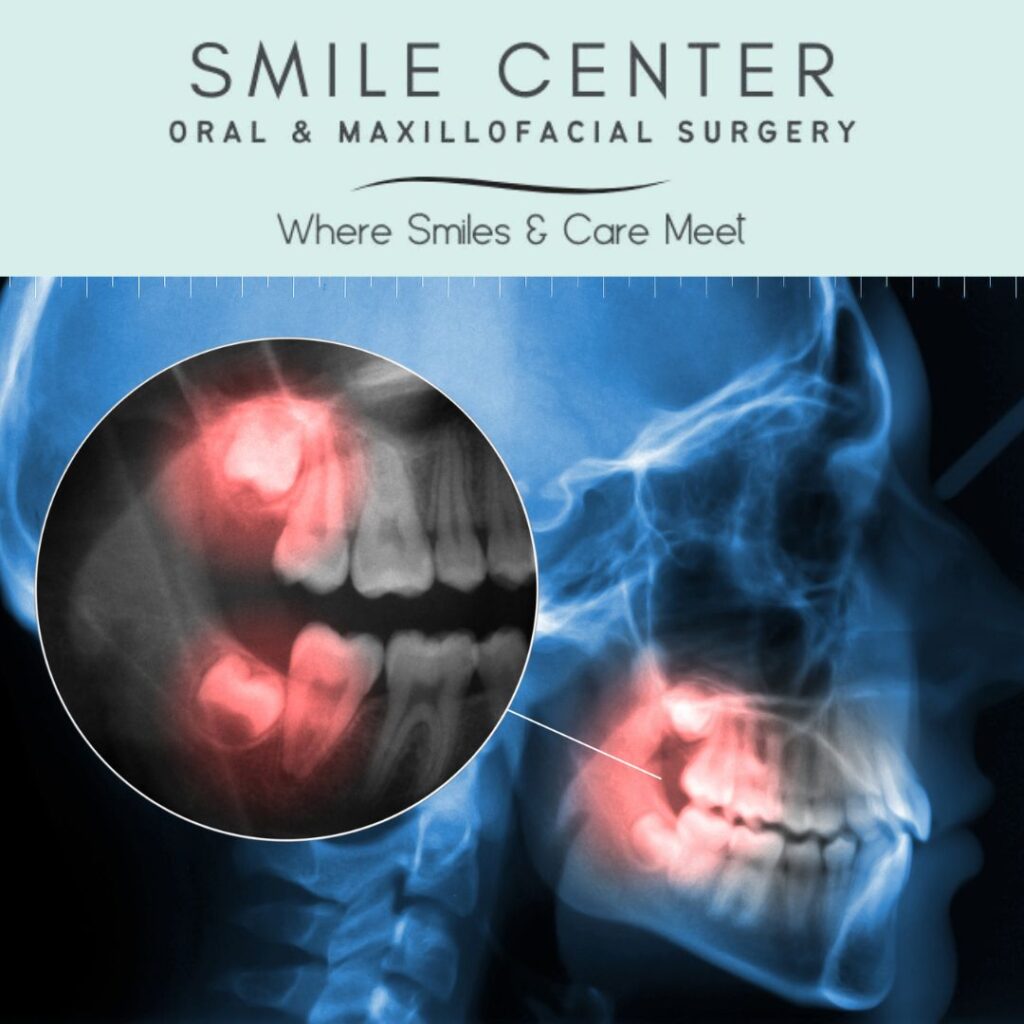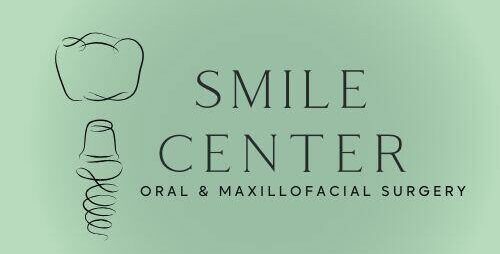
Wisdom teeth — also known as third molars — are the last set of molars to develop, usually emerging in the late teens or early twenties. While some people may have enough room in their mouth to accommodate these extra teeth, the vast majority experience complications that make wisdom tooth removal not only beneficial but often necessary.
At Smile Center Oral Surgery, we see firsthand the problems that impacted or poorly positioned wisdom teeth can cause — and the relief patients experience once they’re removed. Let’s explore the benefits of removing wisdom teeth and the signs you shouldn’t ignore.
Why Remove Wisdom Teeth?
1. Prevent Crowding & Misalignment
When wisdom teeth don’t have enough room to come in, they can push against neighboring teeth, causing crowding and shifting that can undo years of orthodontic work.
2. Avoid Impaction
An impacted wisdom tooth is trapped under the gum or jawbone and cannot emerge properly. Impacted teeth can cause swelling, pain, and even cysts or damage to nearby roots and bone.
3. Reduce Risk of Infection
Partially erupted wisdom teeth are hard to clean. Food and bacteria can easily get trapped around them, leading to painful infections, gum disease, or tooth decay.
4. Lower Risk of Cysts & Tumors
Impacted teeth can form cysts in the jawbone, which may damage the jaw, nerves, and surrounding teeth. In rare cases, tumors may also develop around these cysts.
5. Easier Recovery When Younger
The ideal time to remove wisdom teeth is in the late teens or early twenties — before the roots fully develop and fuse to the jawbone. Recovery is typically quicker and less complicated in younger patients.
Signs & Symptoms You May Need Your Wisdom Teeth Removed
Even if your wisdom teeth haven’t erupted yet, they may still be causing trouble below the surface. Here are common signs to watch for:
- Jaw Pain or Stiffness
Discomfort or soreness in the back of the mouth may be a sign that wisdom teeth are pushing against nerves or other teeth. - Swollen Gums or Jaw
Inflammation can result from trapped bacteria or an impacted tooth. - Bad Breath or Unpleasant Taste
Infection from partially erupted teeth can cause halitosis and an ongoing bad taste. - Headaches or Earaches
Pain radiating from the jaw area can spread to the head or ears. - Difficulty Opening Your Mouth
This could be a sign of inflammation or impaction requiring prompt evaluation.
Final Thoughts from the Oral Surgery Chair
Not everyone needs their wisdom teeth removed, but for most patients, extraction is a proactive step toward preserving long-term oral health. Regular dental exams and X-rays can help detect problems early before pain or damage occurs.
If you’re experiencing any of the symptoms above — or simply want peace of mind — schedule a consultation. At Smile Center Oral & Maxillofacial Surgery, we specialize in gentle, expert care for wisdom teeth removal, helping patients take a smart step toward a healthier, pain-free smile.
